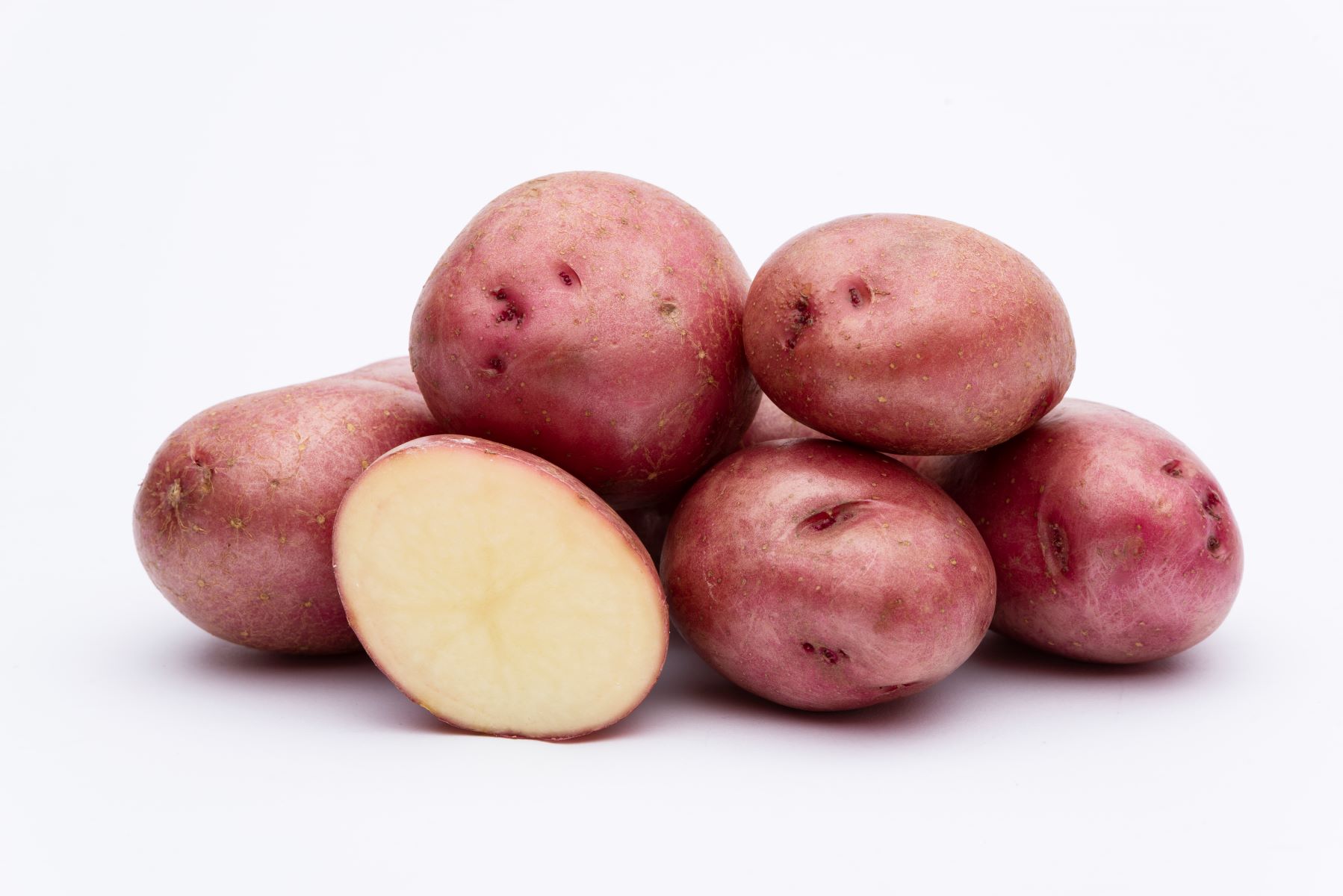
Red potatoes are a versatile and nutritious vegetable that can add a burst of flavor and nutritional value to any meal. These small, round potatoes have a vibrant red skin and a creamy white flesh that make them both visually appealing and delicious. Not only are they a popular choice for cooking due to their smooth texture, but they also offer a range of health benefits. In this article, we will explore 15 nutrition facts about red potatoes that highlight their nutritional value and why they should be a regular addition to your diet. From vitamins and minerals to fiber and antioxidants, red potatoes have a lot to offer when it comes to supporting optimal health and well-being. So let’s dive in and discover why these little gems pack such a powerful nutritional punch!
Key Takeaways:
- Red potatoes are a nutritious choice for a healthy diet, providing fiber, vitamins, and minerals. They can support heart health, digestion, and energy levels, making them a versatile and delicious addition to meals.
- With low calories, fat, and glycemic index, red potatoes are a great option for weight management and blood sugar control. They also promote skin health, immune function, and muscle recovery, offering a wide range of health benefits.
Low in Calories
Red potatoes are an excellent choice for weight management as they are low in calories. A medium-sized red potato contains only about 110 calories, making it a great option for those watching their calorie intake.
High in Fiber
Red potatoes are a good source of dietary fiber. They provide approximately 2 grams of fiber per serving, which can aid in digestion and promote a healthy gut.
Rich in Vitamins
Red potatoes are packed with essential vitamins such as vitamin C, vitamin B6, and potassium. Vitamin C is an antioxidant that helps boost immune function, while vitamin B6 supports brain development and function. Potassium is crucial for maintaining healthy blood pressure levels.
Good Source of Minerals
Red potatoes are a rich source of minerals like iron, magnesium, and phosphorus. Iron is necessary for the production of red blood cells, magnesium supports bone health, and phosphorus is critical for energy metabolism.
Natural Energy Booster
Red potatoes are a natural source of carbohydrates, which are the body’s primary energy source. Including red potatoes in your diet can help provide sustained energy throughout the day.
Low in Fat
Red potatoes are naturally low in fat, making them a healthy choice for those watching their fat intake. They can be enjoyed without adding excessive calories or unhealthy fats.
Boosts Heart Health
The high potassium content in red potatoes can help regulate blood pressure levels, reducing the risk of heart disease. Additionally, their fiber content can aid in maintaining healthy cholesterol levels.
Supports Healthy Brain Function
The combination of vitamin B6 and antioxidants found in red potatoes supports brain health and cognitive function. Including them in your diet can help enhance memory and focus.
Promotes Digestive Health
The fiber content in red potatoes promotes healthy digestion by adding bulk to the stool and preventing constipation. It also supports the growth of beneficial gut bacteria.
Low Glycemic Index
Red potatoes have a low glycemic index, which means they have a slower impact on blood sugar levels. This makes them a suitable option for individuals with diabetes or those looking to manage their blood sugar levels.
Improves Skin Health
The vitamin C in red potatoes plays a vital role in collagen production, which helps maintain the elasticity and health of the skin. Including red potatoes in your diet can contribute to a radiant complexion.
Enhances Immune System
The combination of vitamin C and antioxidants in red potatoes helps strengthen the immune system. By consuming red potatoes, you can give your body the nutrients it needs to fight off infections and illnesses.
Supports Muscle Function
The high potassium content in red potatoes aids in maintaining proper muscle function. Potassium helps prevent muscle cramps and supports muscle recovery after exercise.
Versatile in Cooking
Red potatoes are versatile and can be used in various culinary preparations. They can be boiled, roasted, mashed, or used in soups, salads, and stews, adding both flavor and nutrition to your meals.
No Cholesterol or Sodium
Red potatoes are cholesterol-free and naturally low in sodium. This makes them a heart-healthy alternative to other starchy foods that may be high in unhealthy fats and sodium.
Conclusion
Red potatoes are not only delicious, but they also offer a plethora of nutrition benefits. Packed with vitamins, minerals, and antioxidants, red potatoes can be a valuable addition to a balanced diet. They offer a good source of fiber, promote a healthy digestive system, and contribute to overall heart health. Additionally, red potatoes are low in calories and fat, making them a great choice for weight management. Whether they’re roasted, boiled, or mashed, red potatoes make a versatile and nutritious addition to any meal.
FAQs
1. Are red potatoes healthy?
Yes, red potatoes are highly nutritious. They are a good source of vitamins C and B6, potassium, and antioxidants.
2. How many calories are in red potatoes?
A medium-sized red potato contains approximately 150-160 calories.
3. Can I eat red potatoes if I’m on a low-carb diet?
While red potatoes do contain carbohydrates, they can still be enjoyed in moderation as part of a balanced diet.
4. Are red potatoes high in fiber?
Yes, red potatoes are a good source of dietary fiber, which promotes a healthy digestive system and helps control blood sugar levels.
5. Can red potatoes help with weight loss?
Red potatoes are low in calories and fat, making them a great addition to a weight loss plan when consumed in moderation.
6. How should I cook red potatoes to maintain their nutritional value?
Boiling or steaming red potatoes with their skin intact is the best way to preserve their nutritional value.
7. Can I eat red potatoes if I have diabetes?
Red potatoes can be consumed by individuals with diabetes, but portion control and mindful carbohydrate counting are important.
8. Are the nutrients in red potatoes evenly distributed throughout the potato?
Yes, the nutrients in red potatoes are evenly distributed throughout the entire potato, including the skin.
9. Are red potatoes a good source of antioxidants?
Yes, red potatoes are rich in antioxidants, which help protect the body from cell damage caused by harmful free radicals.
10. Can red potatoes be part of a heart-healthy diet?
Yes, red potatoes can be included in a heart-healthy diet due to their low sodium content and high potassium levels.
Was this page helpful?
Our commitment to delivering trustworthy and engaging content is at the heart of what we do. Each fact on our site is contributed by real users like you, bringing a wealth of diverse insights and information. To ensure the highest standards of accuracy and reliability, our dedicated editors meticulously review each submission. This process guarantees that the facts we share are not only fascinating but also credible. Trust in our commitment to quality and authenticity as you explore and learn with us.


